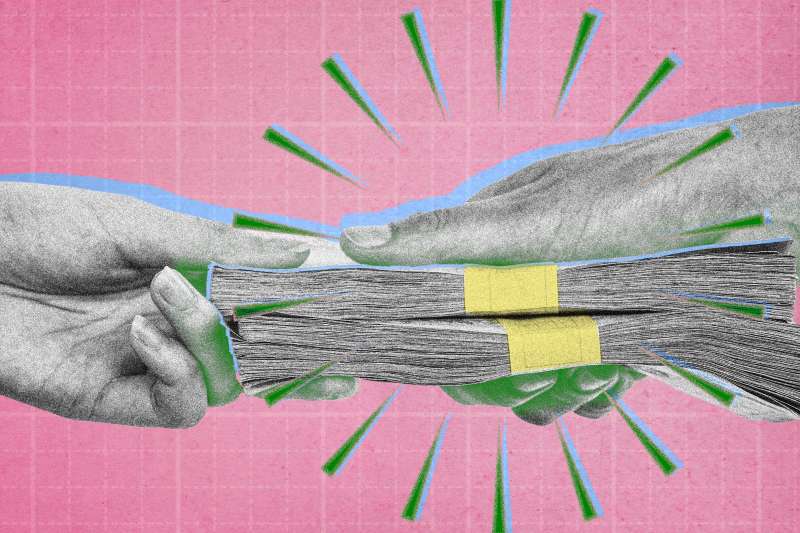What Is the Great Wealth Transfer? (And How Could You Benefit?)

The U.S. is currently undergoing what financial experts call "the great wealth transfer," in which a colossal amount of assets is changing hands — and setting off a major chain reaction.
According to a report from Cerulli Associates, over $84 trillion (with a T) will switch ownership through 2045. Though nearly $12 trillion of that will go to charity, the rest will be transferred directly to heirs.
“Coming out of the financial crisis, we've seen an immense amount of wealth be created, and U.S. households are wealthier than ever,” says Chayce Horton, a senior analyst at Cerulli. “There's tens of trillions of dollars floating around, and a majority of that is controlled by households that are over 65 years old.”
But that’s about to change. As older generations die, they're passing along that money to Gen X, millennial and Gen Z households — which tend to have different perspectives on wealth than many baby boomers do. Regardless of how old you are, that means it's never too early to prepare.
What is the great wealth transfer?
The great wealth transfer is “the most significant transfer of wealth intergenerationally that we've ever seen in the world,” Horton says. Crucially, it comes with a host of societal implications.
First, of course, is the fact that a whole bunch of young people are on track to come into a whole bunch of money — “a seismic change,” as one expert put it in a recent Knight Frank report.
Those young people have very different ideals than their ancestors did; notably, they’re incredibly focused on sustainability and social responsibility. As a result, they are “likely to direct significant amounts of capital to causes beyond solely maximizing economic growth,” per the report. That's yet another major reversal from what we’re used to.
The great wealth transfer isn’t only going to affect the uber-rich, either. People who own their houses or even just have significant savings in their 401(k)s will likely pass them down, changing the financial equation for their descendants.
“Almost 50% of Americans say that they anticipate some sort of inheritance over the next 10 years,” says Lena Haas, head of wealth management advice and solutions at Edward Jones. “So, clearly, the impact is very, very broad.”
Estimates of the individual amounts vary. One analysis says most millennials expect to inherit at least $350,000 from their relatives, though another says the majority of assets will be eaten up by health care expenses.
But the consensus is that the recipients of these inheritances, gifts, real estate, businesses and family heirlooms will have their financial strategies totally rocked. While young people traditionally have built up their wealth through investing, Horton says there’s going to be a huge section of the population that will now have their financial wellness “staked in how much they get from their parents or grandparents.”
“We see in the next 25 years that inheritances will be a more critical driver of household wealth in younger generations than it ever has been,” he adds.
How to get ready for the great wealth transfer
It's clear how the great wealth transfer may affect young Americans who come into money. But it may have a ripple effect that will impact people who aren’t benefiting from intergenerational wealth, as well.
Say you’ve carefully saved up money for years to buy a home. You could end up in a bidding war against a person who received an immense inheritance, which — combined with their own savings — could allow them to easily outbid you.
Alas, Haas says, research shows neither the givers nor the receivers seem to be ready to deal with the consequences of these wealth transfers. (For instance, 19% of people getting an inheritance say they feel anxious about it.) It’s an inherently emotional, awkward topic, so they avoid talking about it… and that can leave everybody at a disadvantage.
She recommends families make it a priority to sit down, maybe with a financial advisor, and talk transparently about their plans. What are their values as a family? How do they approach charitable contributions? Does one child need more support than others?
“It's so important, regardless where the dollars and cents go, to have the conversations on the values on the legacy and on the fundamental reasons why decisions are made,” Haas says.
More from Money:
Why You Might Want a Will, Even if You Don’t Have Valuable Assets
Nearly Half of People Think They'll Pass on Debt to Loved Ones When They Die
More Americans Are Leaving Inheritances — and It’s Not Just Wealthy People

